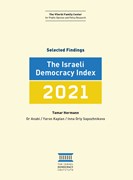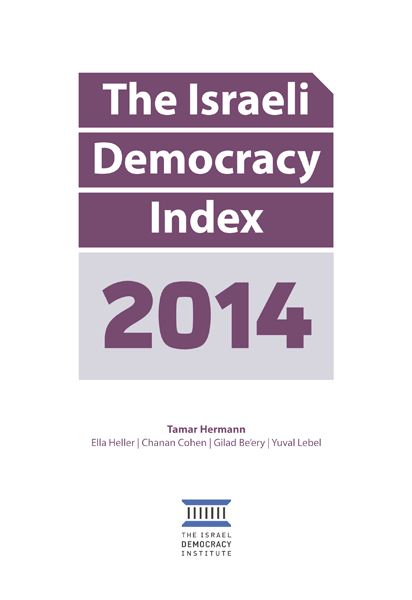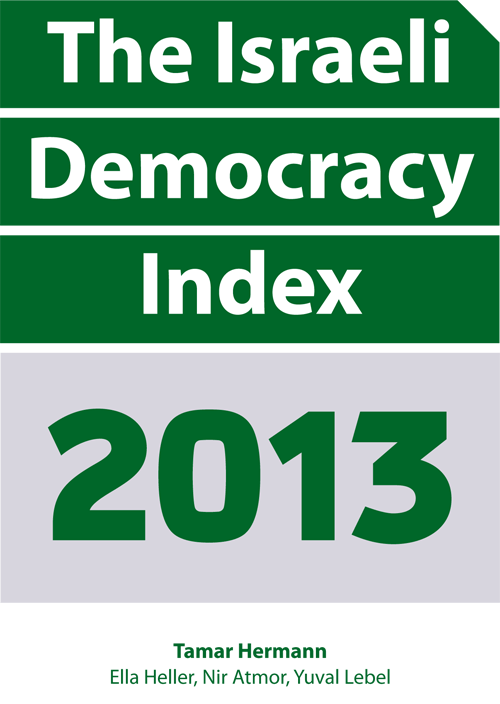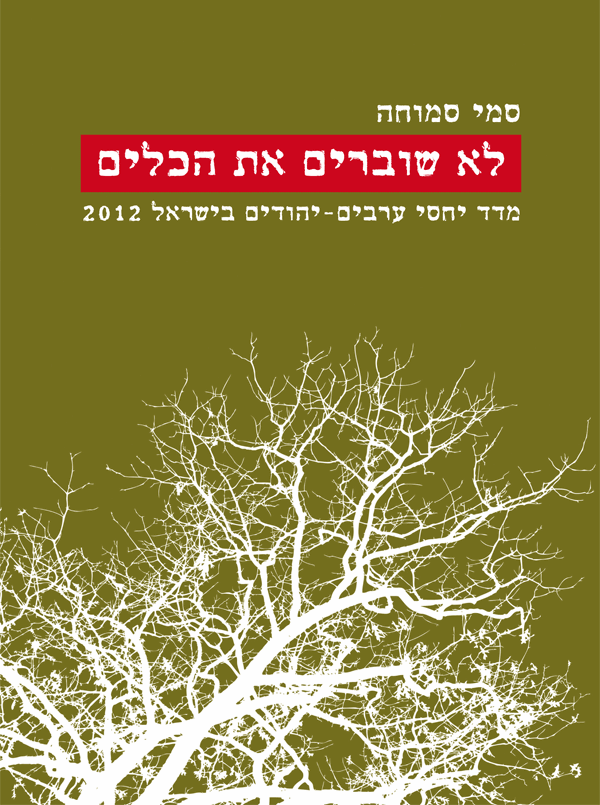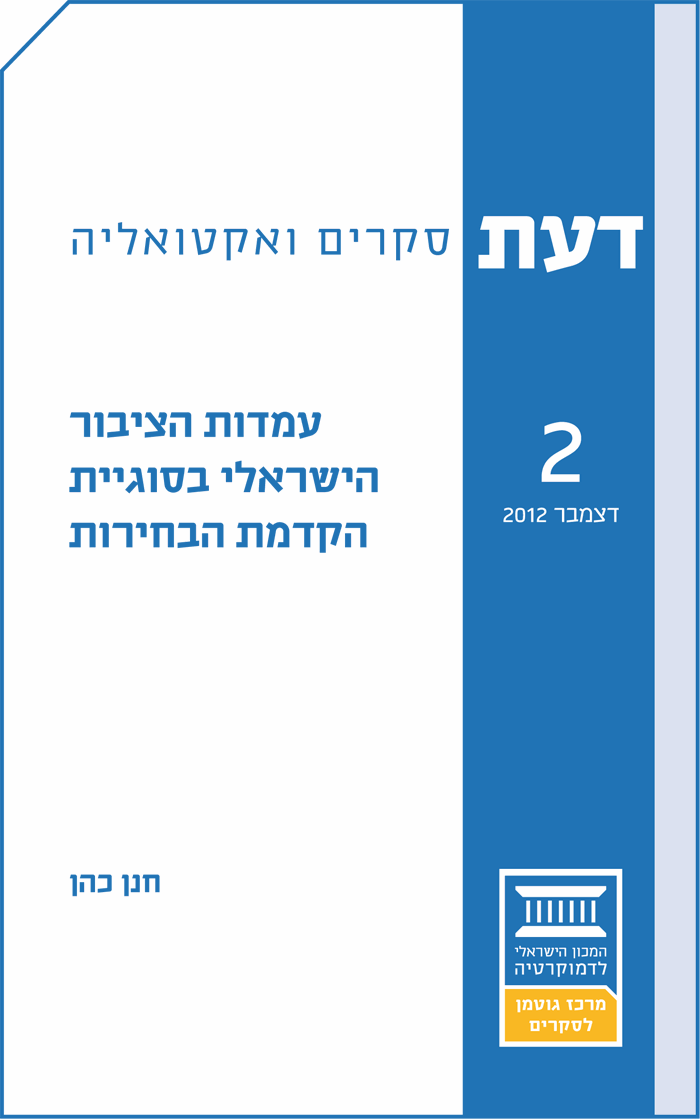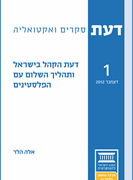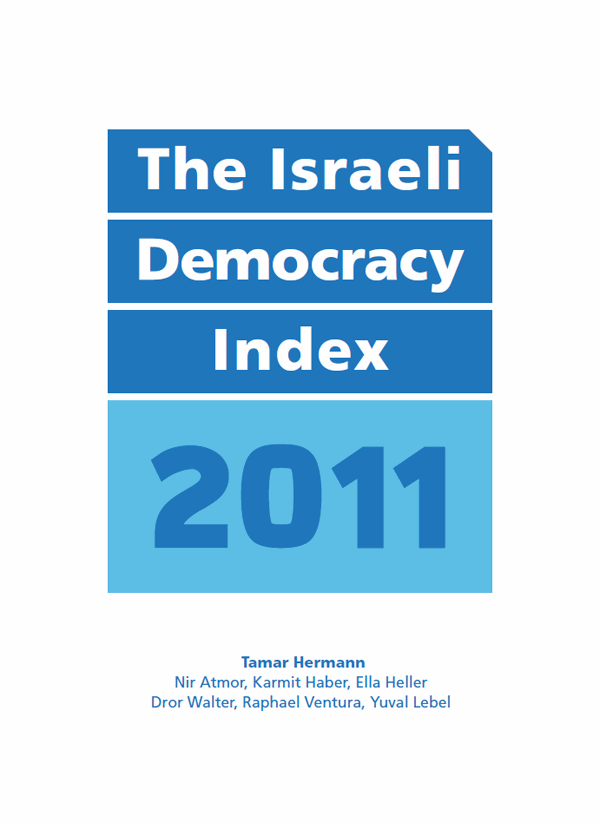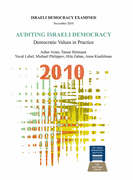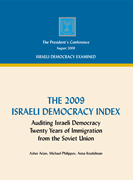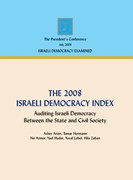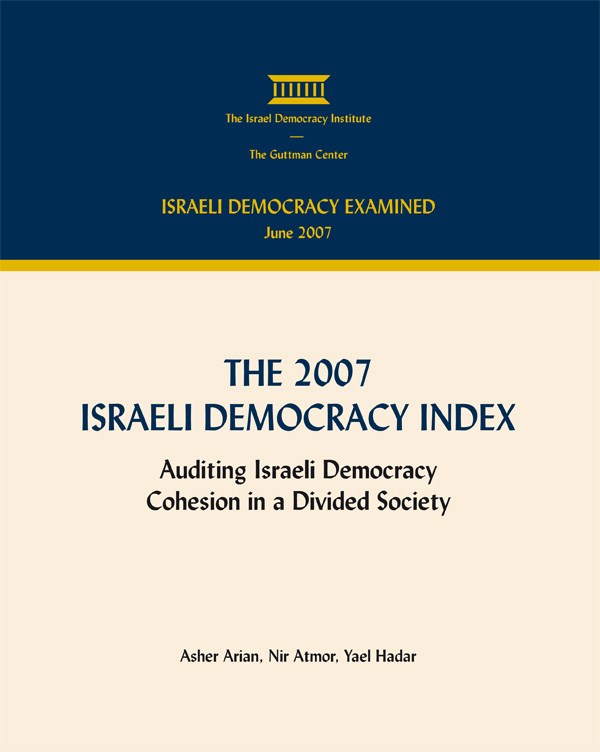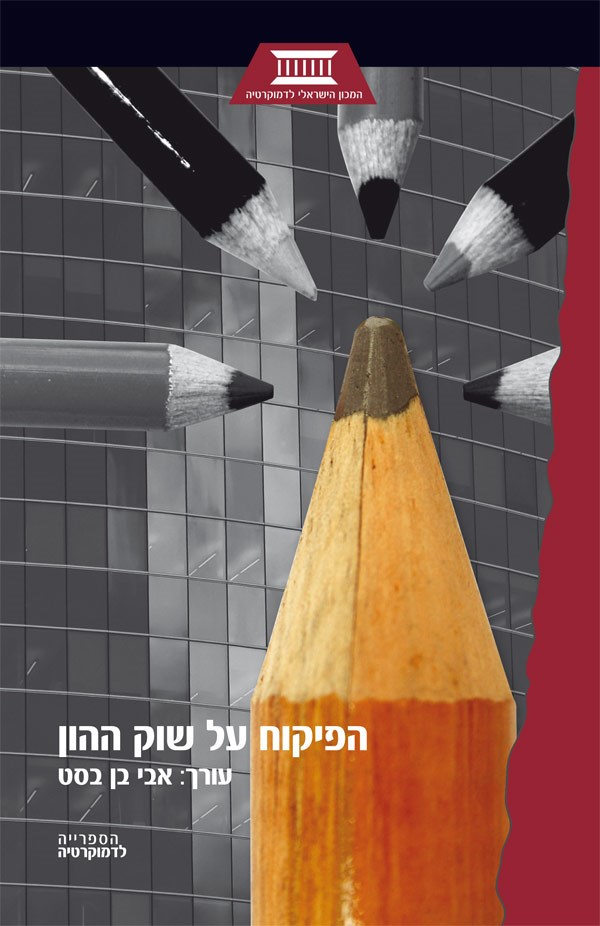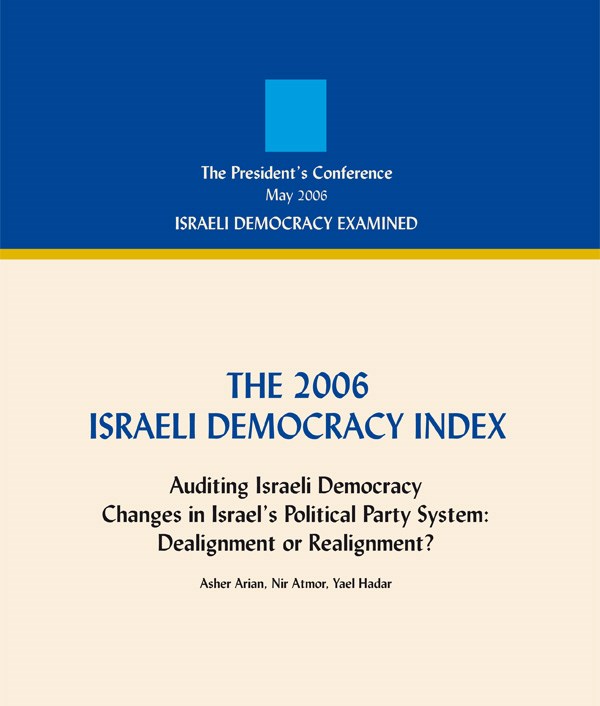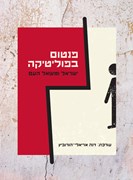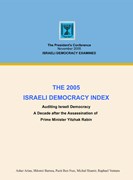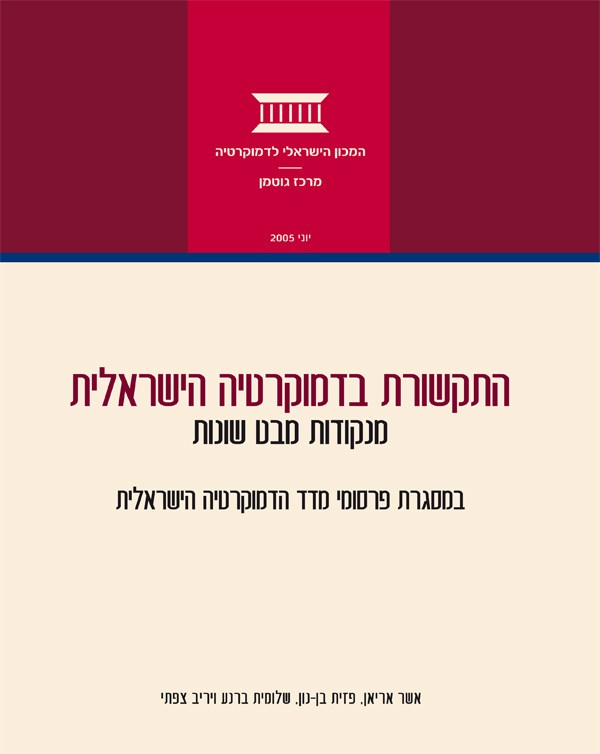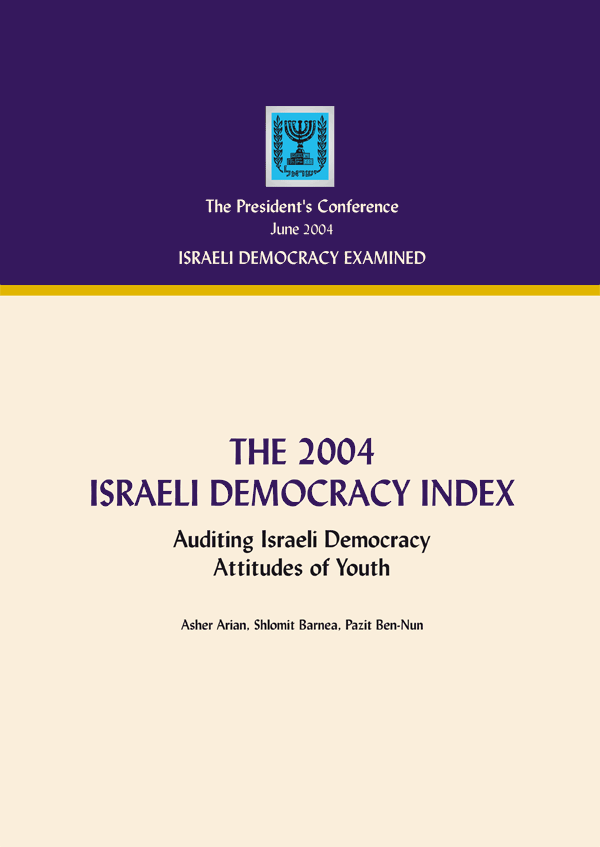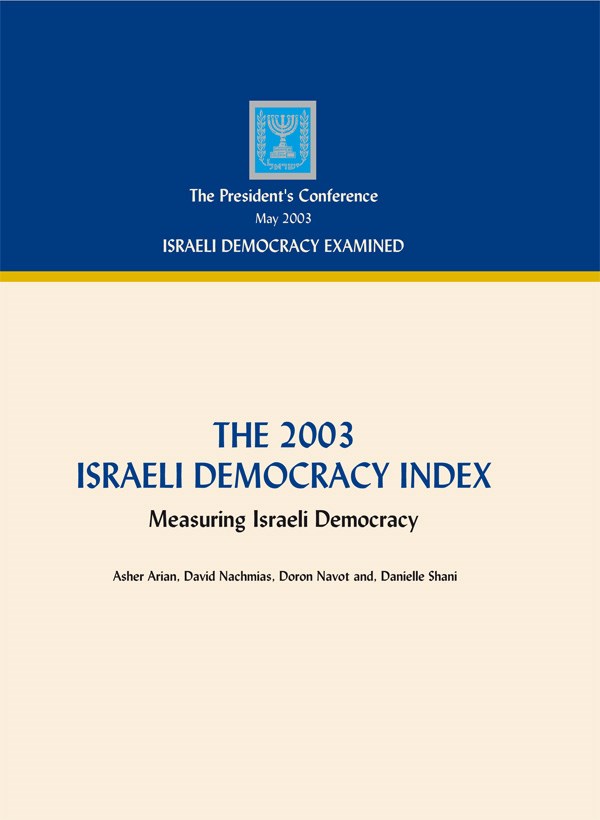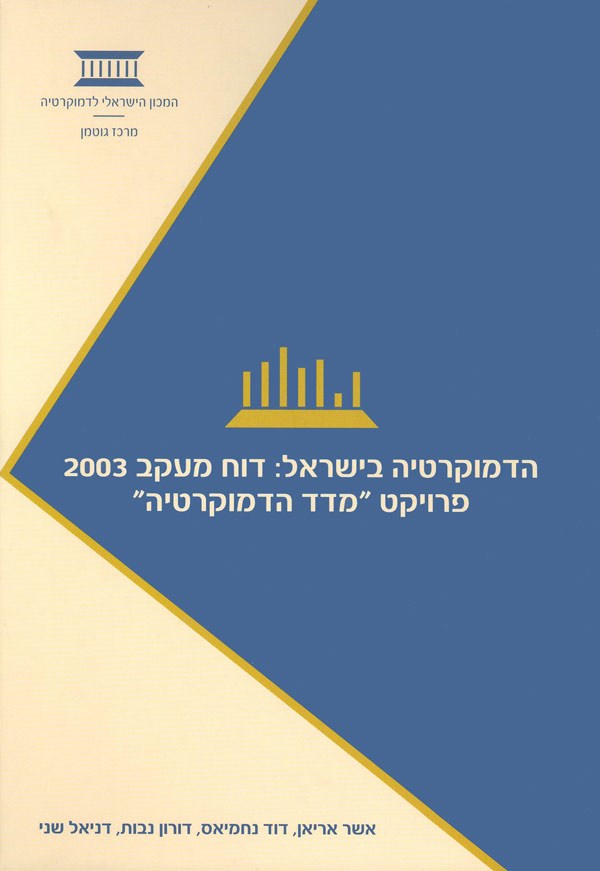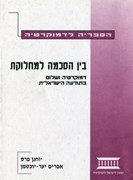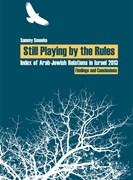

Publications Regarding public opinion
Articles

Flash Survey: More Israelis are optimistic about the country's future despite being at war
Written By: Prof. Tamar Hermann, Dr. Or Anabi
Despite being at war, more Israelis are optimistic about the future of the country than earlier this year, yet most Israelis (64%) fear for their physical safety or that of their immediate family members.
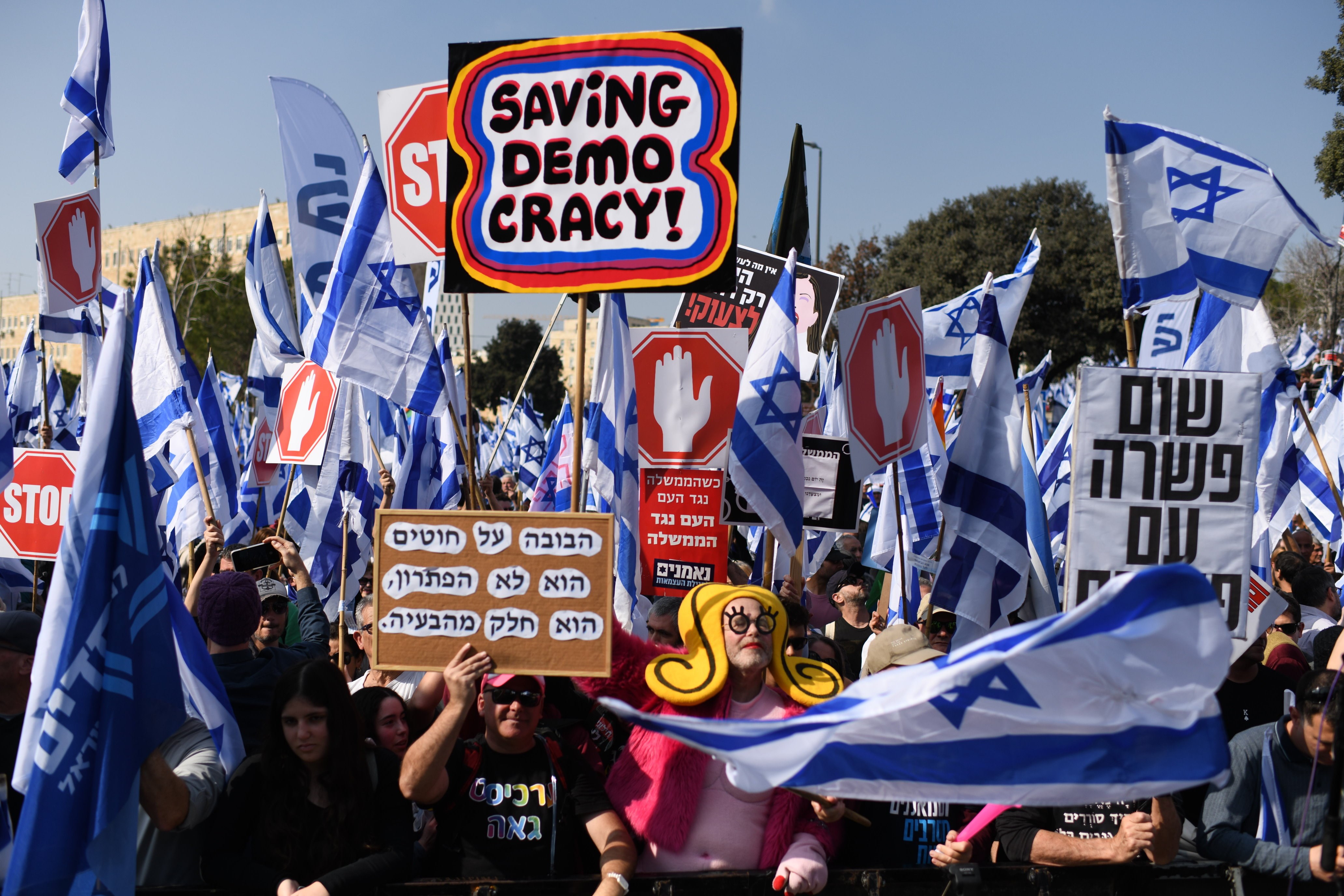
A majority of Israelis think that Israel is currently in a state of emergency
Written By: Prof. Tamar Hermann, Dr. Or Anabi
The July 2023 edition of the Israeli Voice Index finds that 58% of Israelis believe the country is in a "state of emergency." Only a small minority of Israelis believe that IDF reservists, who fail to report for duty in protest of the judicial overhaul, should be dismissed.

Six Months In, Government Gets Low Grades in All Areas
Written By: Prof. Tamar Hermann, Dr. Or Anabi
As the government completes its first six months in office respondents were asked to rate its performance in various fields.

Two States for One People? Israelis Want to Stay United
Written By: Prof. Tamar Hermann, Dr. Or Anabi
Trust in the Supreme Court remains steady, while the share of Israelis who trust the Knesset has almost doubled since last year. Opinions on the likelihood of the government completing its term are fairly evenly divided in the Jewish public.

Israeli Work Life Post Covid
Written By: Daphna Aviram-Nitzan, Yarden Kedar, Roe Kenneth Portal
New survey of Israeli workers reveals changes in levels of satisfaction post COVID pandemic: Most workers in Israel are satisfied with their work-life balance, despite the fact that half of them work more than their official number of hours; around a third report difficulty with functioning in family life

Low Prospects for a Compromise Between Opposition and Coalition
Written By: Prof. Tamar Hermann, Dr. Or Anabi
This month we found a slight rise in optimism regarding both the future of democratic rule in Israel and the future of national security. However, almost two-thirds of Arab Israeli respondents replied they are worried that they or family members will be victims of violent crime.

National Mood Unrestful
Written By: Prof. Tamar Hermann, Dr. Or Anabi
This month saw a decline in optimism regarding both the future of democratic rule in Israel and the future of national security. 21% of Israelis have participated in at least one act of protest against the judicial reforms.

71% of Jewish Israeli Don’t Eat Hametz on Passover
While a large majority of Jewish Israelis said they do not eat hametz (leavened bread) on Passover, and a large minority opposes the idea of bringing hametz into hospitals during the holiday, a majority of respondents are opposed to enforcing such a ban and searching the bags of hospital visitors.

Less than a Third Optimistic about Israel’s Internal Security
Written By: Prof. Tamar Hermann, Dr. Or Anabi
44% of Israelis are optimistic about Israel’s external security– only 28% are optimistic regarding Israel’s internal security.

Only a Minority of Israelis Support the Proposed Judicial Overhaul
Written By: Prof. Tamar Hermann, Dr. Or Anabi
66% of Israelis: Supreme Court should have power to strike down laws that are incompatible with Israel’s Basic Laws | On Judicial Selection Committee: 63% Support Current Principle Requiring Agreement between Politicians and Justices.

Who is a Jew? Survey on Religion and State
Written By: Dr. Ariel Finkelstein, Ayala Goldberg, Adv. Shlomit Ravitsky Tur-Paz
70% of Jewish Israelis do not accept patrilineal descent and therefore do not consider those born to a Jewish father and non-Jewish mother to be Jewish. The new IDI survey reveals what Israelis really think on matters of religion and state
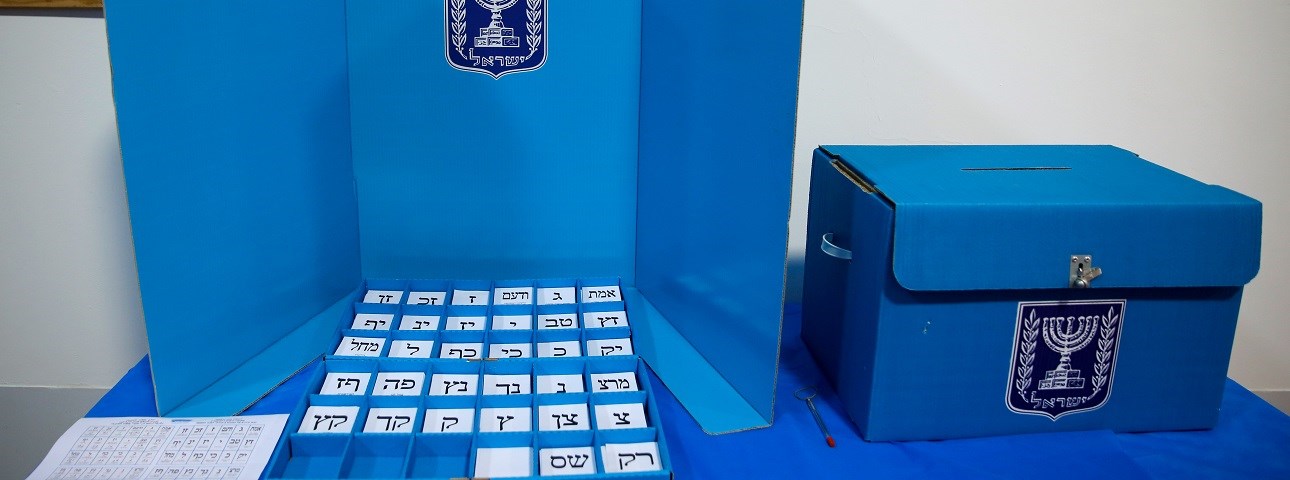
Jewish Israeli Voters Moving Right - Analysis
Written By: Dr. Or Anabi
New analysis by Dr. Or Anabi reveals a strong correlation between those who identify as left-wing and their votes for parties categorized on the left. The same applies to Israelis who places themselves in the ideological center. By contrast, the voting patterns of Israelis who identify on the right is more complicated with many voting for parties thought to fall outside of the traditionally-defined right-wing bloc.

Israelis Say That Food and Housing Are Highest Expenditures
Written By: Prof. Tamar Hermann, Dr. Or Anabi, Yaron Kaplan
A special IDI survey found that Israelis say that while there has been an 8.5% rise in their expenses over the past year, wages have remained stagnant – and even declined. The public is also split on which type of government after November’s election would deal best with the high cost of living.

Israelis Say They Base Their Vote on Party’s Economic Platform
Written By: Prof. Tamar Hermann, Dr. Or Anabi, Yaron Kaplan
The Israeli Voice Index for July 2022 found that the main factor influencing Israelis’ consideration when voting is the party’s platform on economic issues and its plan for coping with the high cost of living (44%). 24% of respondents say that the party head is their top factor in deciding which slate to vote for

The Center: Yesh Atid, New Hope, Blue and White and Yisrael Beitenu Voters
Written By: Prof. Tamar Hermann, Dr. Or Anabi
The Center of the Israeli political map is fluid and is still developing a systematic and uniform ideological worldview. What do we know about its voters?
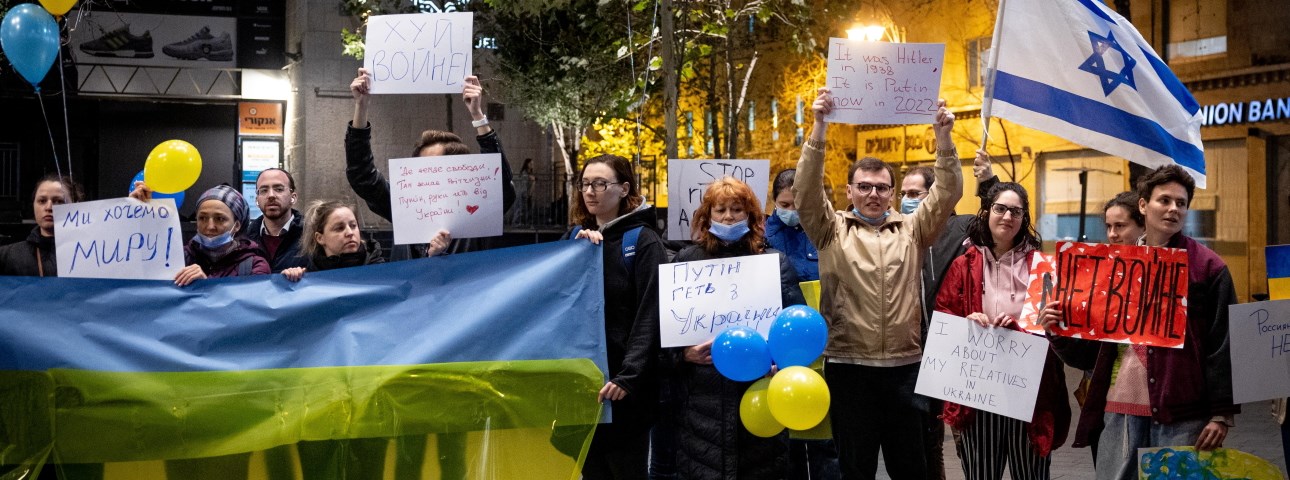
Israelis Support the West’s Policies on Russia Press Release
The Israeli Voice Index for February 2022 found that almost half of Israelis (48%) support the current policy of western countries to impose harsh sanctions on Russia but not to engage directly with military force. 37% of those surveyed believe that a military intervention is the preferred course of action.
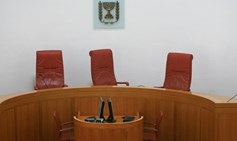
Trust is on the Wane
Written By: Dr. Guy Lurie
Despite a decline in trust - the public still believes that in the Court’s role as a professional independent entity and guardian of democratic principles.
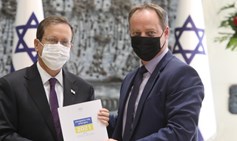
Israeli Democracy Index 2021: Trust
Written By: Prof. Tamar Hermann, Dr. Or Anabi, Yaron Kaplan, Inna Orly Sapozhnikova
IDI's 2021 Israeli Democracy Index shows a decline in trust in most state institutions
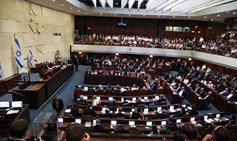
Israeli Democracy Index 2021: Democratic Values
Written By: Prof. Tamar Hermann, Dr. Or Anabi, Yaron Kaplan, Inna Orly Sapozhnikova
The 2021 Democracy Index reveals a complex picture regarding the level of public trust in key institutions and officials, 46% of respondents say that tensions between Jews and Arabs is the fiercest tension in Israeli society

2021 Israeli Democracy Index: Israel’s Legal System
Written By: Prof. Tamar Hermann, Dr. Or Anabi, Yaron Kaplan, Inna Orly Sapozhnikova
A small majority agree that the Supreme Court should have the power to overturn laws passed by the Knesset when democratic principles are contradicted, while a high rate of the Israeli public, primarily from the right-wing and ultra-Orthodox, believe that the selection of judges in Israel is based on political considerations.
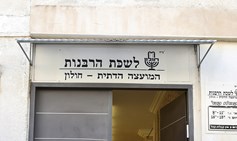
Most Israelis Want Term Limits for Local Rabbis
Written By: Dr. Ariel Finkelstein
Most of the public support limiting local authority rabbis' term of service to five years and giving them the option to be re-appointed at the end of each term

Taxing Sugary Beverages
Written By: Prof. Yuval Feldman, Rotem Shpigler
How will Israelis react to a new tax on sugary drinks? A special IDI survey found that only a quarter of the public said that they would reduce their consumption of such drinks if they are taxed up to half a shekel, but a significant majority said they would limit their consumption if the tax exceeds two shekels.

Does Iran pose an existential threat? Israeli Voice Index November 2021
Written By: Prof. Tamar Hermann, Dr. Or Anabi
62% of Israeli Jews think that Iran poses an existential threat and 58% would support an attack on Iran’s nuclear facilities also without American consent

Changing Public Perceptions of the IDF: Special Survey
While Israelis award the IDF good grades for its operational capabilities and ethical conduct in combat, less than a third of the public think the IDF is managing its budget well and in a fiscally-responsible manner. 47% of Jewish Israelis now think that the IDF should abandon its 'people's army' model and transition to a professional standing military.
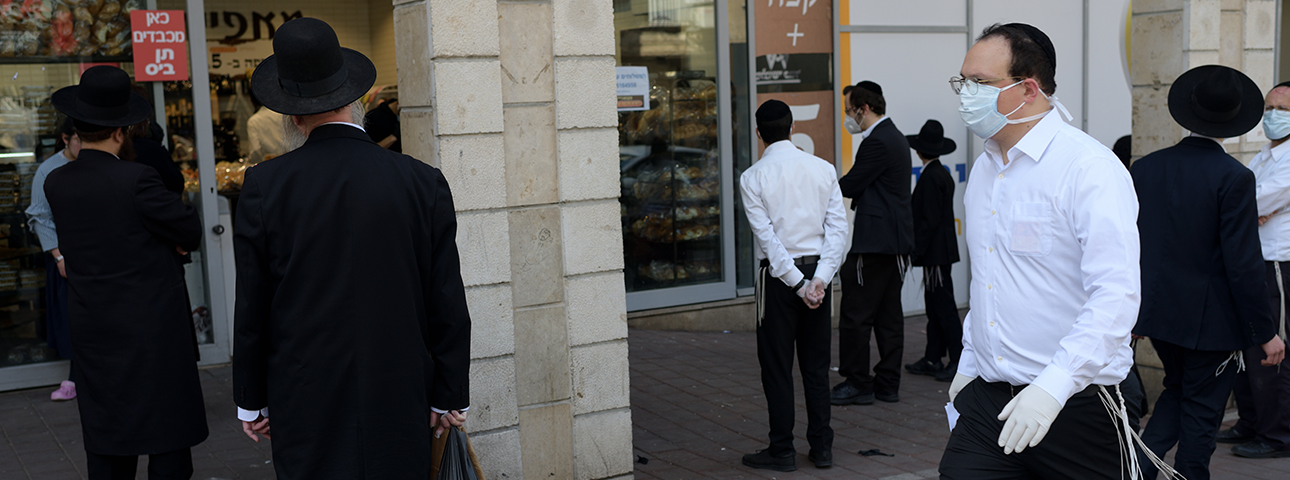
Stabilizing the Economy and Combatting COVID by Imposing Restrictions
Written By: Prof. Tamar Hermann, Dr. Or Anabi
After more than 100 days in office – Israelis want the new government to prioritize stabilizing the economy and combatting COVID by imposing restrictions on the unvaccinated
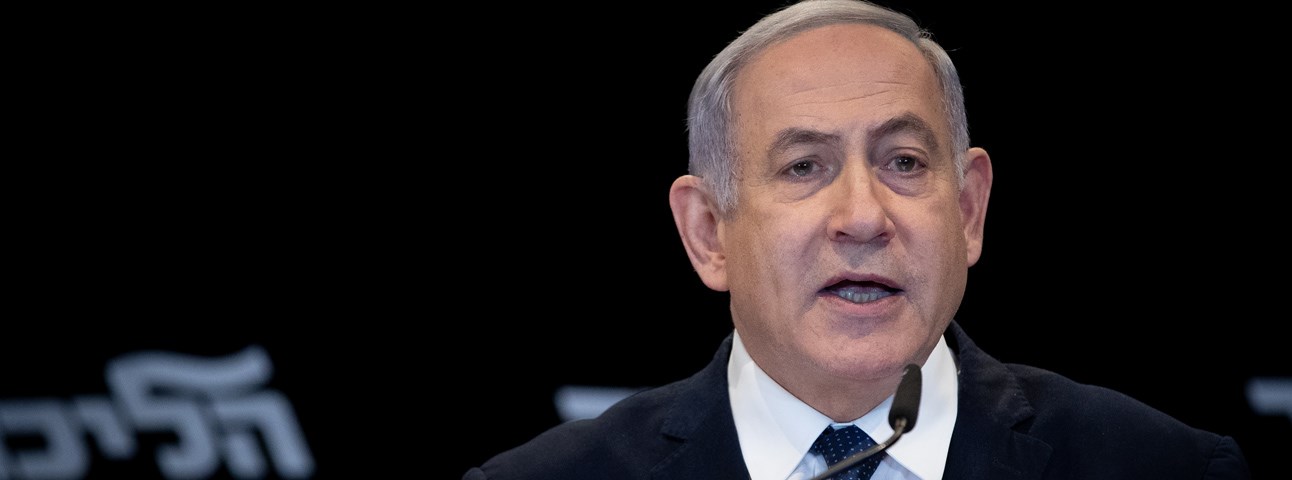
An International Look at Israeli Democracy Under Benjamin Netanyahu
Written By: Dr. Or Anabi, Prof. Tamar Hermann
The new government offers a timely opportunity to review and assess Benjamin Netanyahu’s premiership in terms of its impact on Israeli democracy.
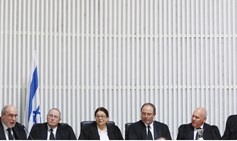
Why is Public Trust in the Supreme Court Falling?
Written By: Dr. Nadiv Mordechay
In an age of waning trust in state institutions and an ongoing health and democratic crisis, the public must be able to look towards the courts as a staunch defender of human rights and democratic structure.

The Views of Israeli Voters
Written By: Dr. Or Anabi, Prof. Tamar Hermann
What are the views of Israelis on a range of subjects, and how do these views relate to their decision on who to vote for in the upcoming elections?
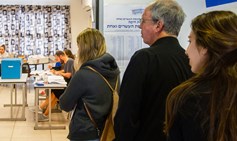
The March 2021 Elections: The Fence-Sitters
Written By: Prof. Tamar Hermann
Those who still haven’t made up their mind about who they will vote for in less than a month is much higher than it was before the elections in March 2020 – how will it effect the outcome?
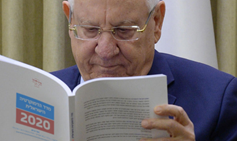
IDI's 2020 Democracy Index: Public Trust, Social Solidarity and Democracy in Danger
Israeli Democracy Index 2020 reveals the lowest point in a decade in the public's trust in all public institutions and government officials—particularly in the Knesset and the Supreme Court – as well as major erosion of the public’s sense of social solidarity.

Israel’s Unique Challenges Require a Strong Leader
Written By: Prof. Tamar Hermann, Dr. Or Anabi
53% of Israelis agree or strongly agree that dealing with Israel’s special problems requires a strong leader who will not worry about the Knesset, the media or public opinion.

Leaders' Credibility Low
Written By: Prof. Tamar Hermann, Dr. Or Anabi
Our monthly Index found that both Prime Minister Netanyahu and Alternate Prime Minister Benny Gantz have low or very low credibility among Israelis.
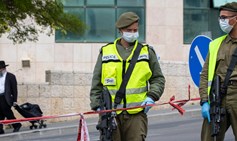
Large Majority Think IDF Should Manage Coronavirus Crisis
A special survey reveals that the public perceives the IDF as a skilled army and is prepared to face major military threats
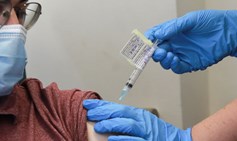
Israelis Wary about Partaking in First Round of Vaccinations
Written By: Prof. Tamar Hermann, Dr. Or Anabi
This survey is the fourteenth in a special series examines the public attitudes towards government policies relating to the coronavirus outbreak and to the economic fallout from the pandemic

Most Israelis Support Suspending Demonstrations as Part of Lockdown
Written By: Prof. Tamar Hermann, Dr. Or Anabi
While a third of the Israeli public supports the current restrictions imposed by the government and an additional 29% support putting additional measures into effect, trust in the Prime Minister's handling of the crisis has fallen to a new low. Most Israelis also believe that mass demonstrations should be banned during the lockdown.

The Israeli Voice Index – August 2020
As Israelis approach the Jewish new year, they are skeptical about the country's collective mood but personally optimistic about the future. The Israeli public is also pleased about the expected treaty with the UAE and skeptical about the longevity of the government.
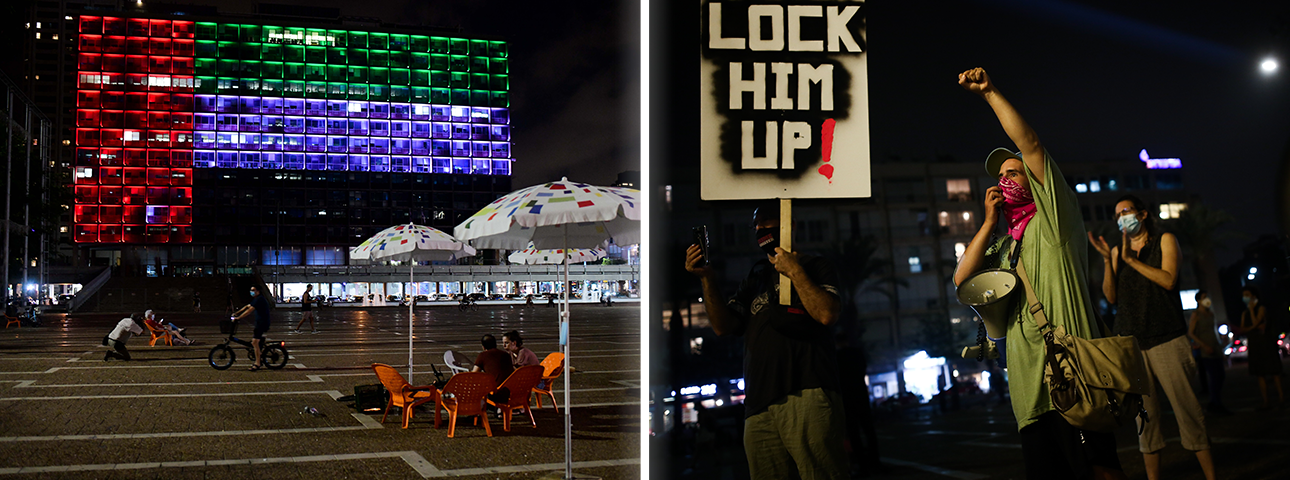
Israelis Pessimistic on the Country's Outlook but Hopeful on Peace with UAE
Written By: Prof. Tamar Hermann, Dr. Or Anabi
With the Jewish New Year approaching, Israelis are pessimistic on the country's outlook but hopeful on peace with UAE; 41% of Israelis think the upcoming year will be worse than the last; 68% of Israelis think that Israel will be heading to elections when the budget compromise between Likud and Blue and White expires in December.

Corona Survey #11
Written By: Prof. Tamar Hermann, Dr. Or Anabi
IDI's latest coronavirus survey found 45% of Israelis pessimistic about the country's ability to overcome the COVID-19 crisis. The survey also found that if opened, 74% of Israelis plan on sending their children to school
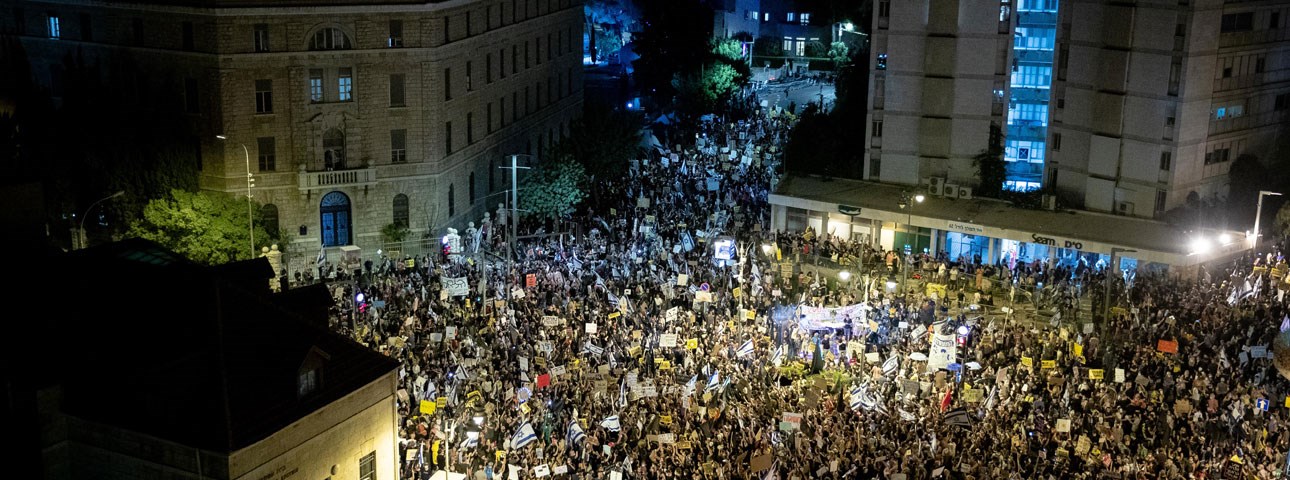
Only 25% of Israelis Approve of Netanyahu's Handling of the Corona Crisis
Written By: Prof. Tamar Hermann, Dr. Or Anabi
The Israeli Voice Index for July 2020 found that 58% of Israelis identify with the protests against the government’s economic policies while 45% identify with the elements focused on personal opposition to Prime Minister Netanyahu

Netanyahu's Future
Written By: Dr. William Cubbison
Benjamin Netanyahu's legal problems are at the center of the current political quagmire. So what do Israelis think about the legal situation and what are the possible resolutions?
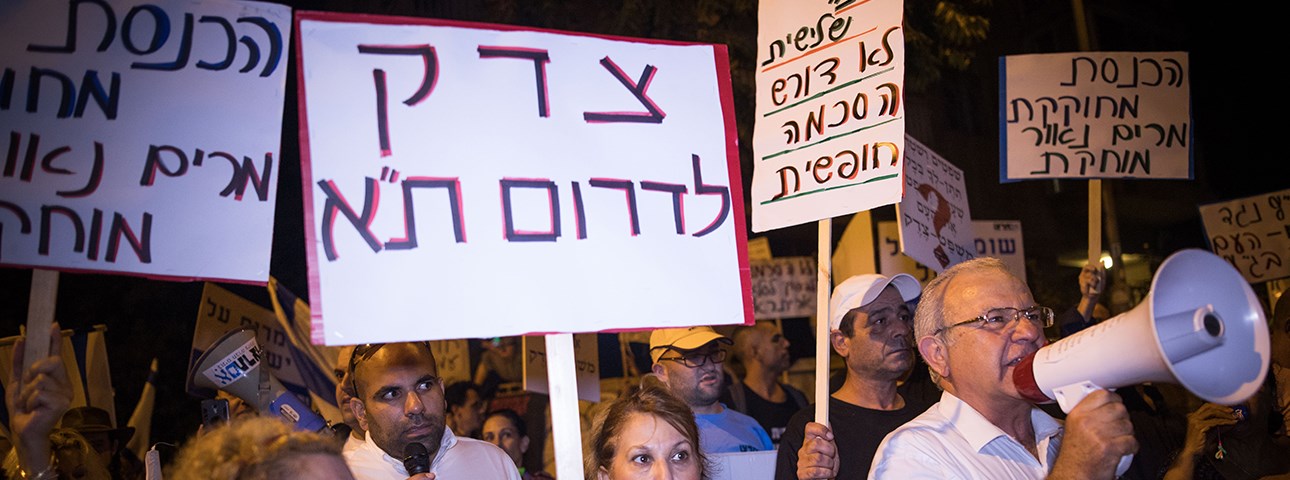
Israelis Support Deportation of Asylum Seekers
Written By: Prof. Tamar Hermann, Prof. Ephraim Yaar
66% of the Jewish public and half of the Arab public support the government’s decision to deport asylum seekers to African countries that are prepared to absorb them.

Data Israel
Written By: Prof. Tamar Hermann, Or Anabi, Tzipy Lazar-Shoef
In Honor of Israel's 70th Anniversary The Guttman Center for Public Opinion Research and Policy at the Israel Democracy Institute Is Launching “Data-Israel”: The largest and most encompassing online public opinion research database in Israel at the click of a button.
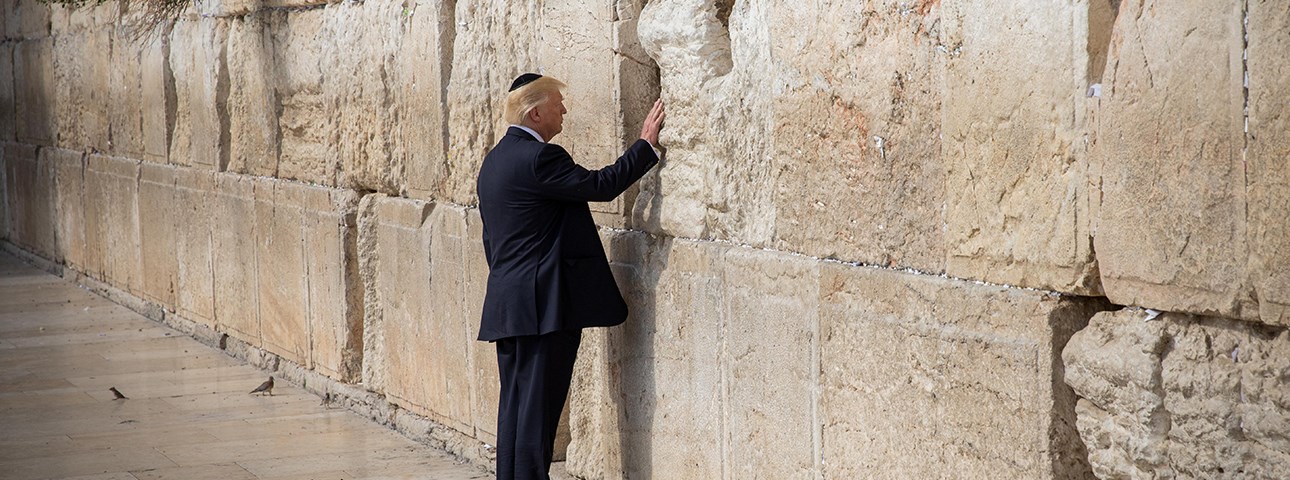
Is President Trump’s public declaration that Jerusalem is the capital of Israel in Israel's best interest?
Written By: Prof. Tamar Hermann, Prof. Ephraim Yaar
In light of President Trump's Declaration on Jerusalem: a large majority of the Jewish public think President Trump’s public declaration that Jerusalem is the capital of Israel was in Israel's best interest; a clear majority (over 60%) of the Israeli public agrees that Jerusalem is already divided into two cities: the eastern city and the western city
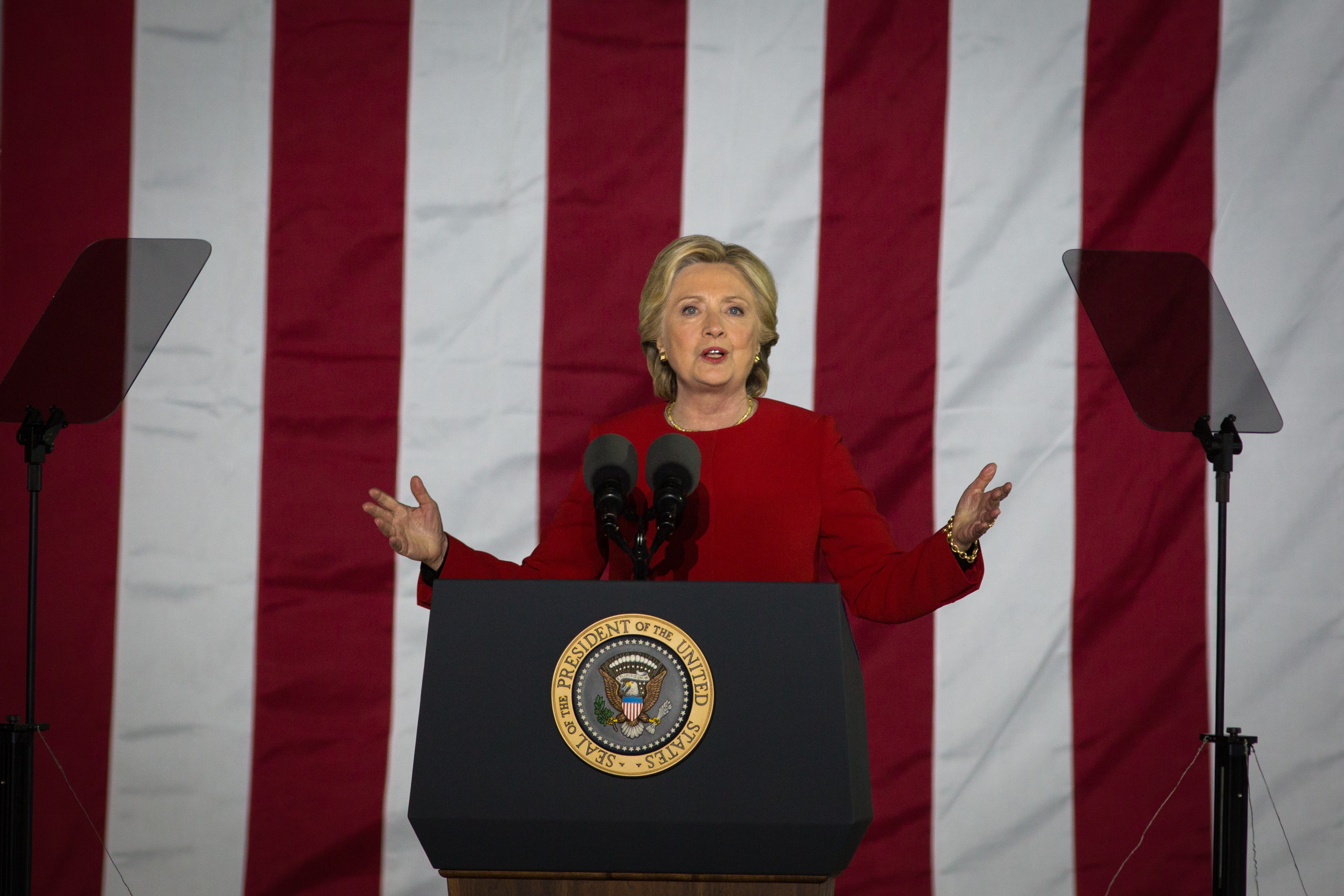
Israelis Believe Clinton will Push them Harder on Peace, Back Her Anyway — Poll
Written By: Marissa Newman
Israelis may have given up for now on peace, but still want peace talks. Arab Israelis are more optimistic than their Jewish counterparts about state’s future.

55% of the Jewish Public Prefers Continued Israeli Rule Over the Palestinians
IDI's Guttman Center for Surveys examines Israelis' attitudes towards the continued presence in the territories as we move into the 50th year following the Six Day War. Participants discuss the security situation, their factual knowledge of the situation in the West Bank, and their predictions for the future of the territories.

Israelis: Palestinians Must Recognize Israel as State of Jewish People
Public sees Israeli government's performance to be medium or low

The Moral Imperative
Written By: Prof. Yedidia Z. Stern
In an op-ed first published by The Jerusalem Report, Prof. Yedidia Stern says this intifada of knives has left Israel in a twilight zone. It is not a time of war, in which the army is permitted to use arms more freely. But nor is it a time of peace in which any use of arms is seen as most irregular. Sharp differences of opinion between the public and the army could lead to a crisis in public confidence in the military high command. There is a crying need for responsible leadership.

A Democratic or Republican Candidate?
Peace Index: Israelis weigh in on which candidate is better for the Jewish State; Survey examines perceptions of Jerusalem as a divided city.

49% of Israelis Willing to Put Up Wall, Separate from Palestinians
The majority of Israeli Jews (52.8%) say Israel applies the law equally toward Jews and Palestinians living in the West Bank, contrary to a statement made last month by U.S. Ambassador Dan Shapiro. However, 50.1% of respondents thought Israel would be justified in unequal application of the law toward Jews and Palestinians in the territories.
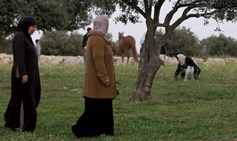
Israeli Public Divided Over Trust for Arab Citizens
Written By: Mr. Chanan Cohen
IDI Researcher Chanan Cohen says that while the greatest tension in Israel is between Arab and Jewish Israelis, there is cause for hope. The vast majority of Jews support having Arabic translations of public signs in Israel, teaching Arabic in school and having Arab citizens represented in the civil service. This article was first posted in the New York Jewish Week.

Latest Peace Index: Israelis Are "Tense But Not Hysterical"
This month's peace index survey focused on the ongoing wave of terror attacks and how they are affecting the feelings and behaviors of the Israeli public. Overall, the study found a Jewish public that is tense but not hysterical.

A Social Iron Dome for Jewish-Arab Relations
Written By: Prof. Yedidia Z. Stern
In an op-ed in <em>Yedioth Ahronoth</em>, Prof. Yedidia Stern warns that the Iron Dome could not protect Israel from hatred between Jewish and Arab citizens, and stresses the need for both sides to use imaginative empathy to mend the fabric of Israel's shared society.?

On Operation Protective Edge, Justice, Law, and Victory
Written By:
Admiral Ami Ayalon asserts that the winner of today's wars is the side whose story is perceived as just, and argues that without a diplomatic track, Israel cannot win the war, even if the war is justified and Israel adheres to international law in the face of terrorists who violate it.

July 2014 Peace Index

Israeli Views of Diaspora Jewry 2014
Written By: Mr. Chanan Cohen, Ella Heller, Prof. Tamar Hermann
How do Jews in Israel see their connection with Jews in the Diaspora? In preparation for the first <a href="http://jms.org.il" target="_blank">Jewish Media Summit</a> (JMS), IDI's Guttman Center for Surveys conducted a survey of the attitudes of Israeli Jews toward Diaspora Jewry.

Israeli Views of Diaspora Jews - 2014 Survey

May 2014 Peace Index
This month's Peace Index poll covers US-Israel relations, theoretical unilateral moves by the Israeli government, attitudes towards and pursuit of "price tag" perpetrators, and Israeli defense and socioeconomic challenges.

April 2014 Peace Index
Two-Thirds of Israeli Jews Agree with Israeli Gov’t Decision to Halt Negotiations Following Hamas Reconciliation
Majority of Israeli Jews Disagree with US President Obama Blaming Both Sides for Lack of Progress in Talks

Israeli Public Opinion on Reducing Funding to Organizations that Mark Independence Day as the "Nakba"
Written By: Mr. Chanan Cohen
What do Jews in Israel think about the law mandating the reduction of government funds to institutions that mark Israel Independence Day as a day of mourning for the Palestinian "Nakba"? Find out in this mini-survey conducted by IDI's Guttman Center.

The Leading Candidate for President: "I Don't Know"
Written By: Mr. Chanan Cohen
Two months before the elections for president of Israel, who does the Israeli public see as the most suitable candidate for the job? Find out in this mini-survey from IDI's Guttman Center.

2014 Israeli Independence Day Mini-Survey
87% of Jewish Israelis Celebrate Yom HaAtzmaut as a Holiday, 68% of Arab Israelis Do Not
Majority of Israeli Jews Support Reducing Gov't Support for Institutions Which Mark Israeli Independence Day as the “Nakba”

Public Opinion: Is Israel Independence Day a Holiday?
Written By: Mr. Chanan Cohen
Do Jewish and Arab citizens of Israel see Yom Ha'atzmaut as a holiday? Do perceptions among Jews vary depending upon level of religiosity or position on the right-left political spectrum? Find out in this Mini-Survey from IDI's Guttman Center.

Nothing is Known Yet: Public Opinion on the Israeli Presidential Race
Written By: Mr. Chanan Cohen
Although the presidential race is heating up, the public does not seem to be particularly interested in it. What do Israeli citizens know about the race? Who is their candidate of choice? Find out in this mini-survey by the Guttman Center for Surveys.

Should the Israeli President Take a Stand on Controversial Issues?
An IDI survey reveals how the Israeli public perceives the role of the President.
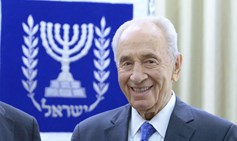
Israeli Public Opinion on the President and the Presidential Elections
Written By: Ella Heller
As the elections for the tenth President of Israel near, IDI researcher Ella Heller of the Guttman Center for Surveys presents an analysis of Israeli public opinion regarding the desired professional background for the next president of Israel, and how the elections should be conducted.

Remembering Rabin: Attitudes toward Political Violence in Israel 2013
Written By: IDI Website Staff
How do Israelis feel about political violence today, 18 years after the assassination of Prime Minister Yitzhak Rabin? As Israel commemorates Rabin Memorial Day, consider the following findings of the 2013 Israeli Democracy Index.

The Israeli Democracy Index A Periodic Check-Up
Written By: Prof. Tamar Hermann
Each year, the Israel Democracy Institute checks the health of Israeli democracy by means of the annual Israeli Democracy Index. In an op-ed in Yedioth Ahronoth, Prof. Tamar Hermann discusses the 2013 Index, which was submitted to President Shimon Peres on October 6, 2013.

The Israeli Democracy Index: A Periodic Check-Up
Written By: Prof. Tamar Hermann
Prof. Tamar Hermann, head of IDI's Guttman Center for Surveys, discusses the findings of the 2013 Israeli Democracy Index, which was submitted to President Shimon Peres on October 6, 2013.

Social Justice in Jewish-Arab Relations in Israel
Written By: Shlomit Kagya, Ola Nabwani, Avital Manor, Nabil Khattab, Sami Miaari
An article by members of IDI’s Arab-Jewish Relations research team, which explores the lack of social justice for Israel’s Arab minority in three areas: employment, healthcare, and the public sphere.

Israelis Indifferent to Obama Visit
Written By: Prof. Tamar Hermann
In an op-ed in <em>Yedioth Ahronoth</em>, IDI Senior Fellow Prof. Tamar Hermann, head of the Guttman Center for Surveys, shares observations about the lack of public interest in President Obama's visit to Israel, citing figures from the February–March 2013 Peace Index.
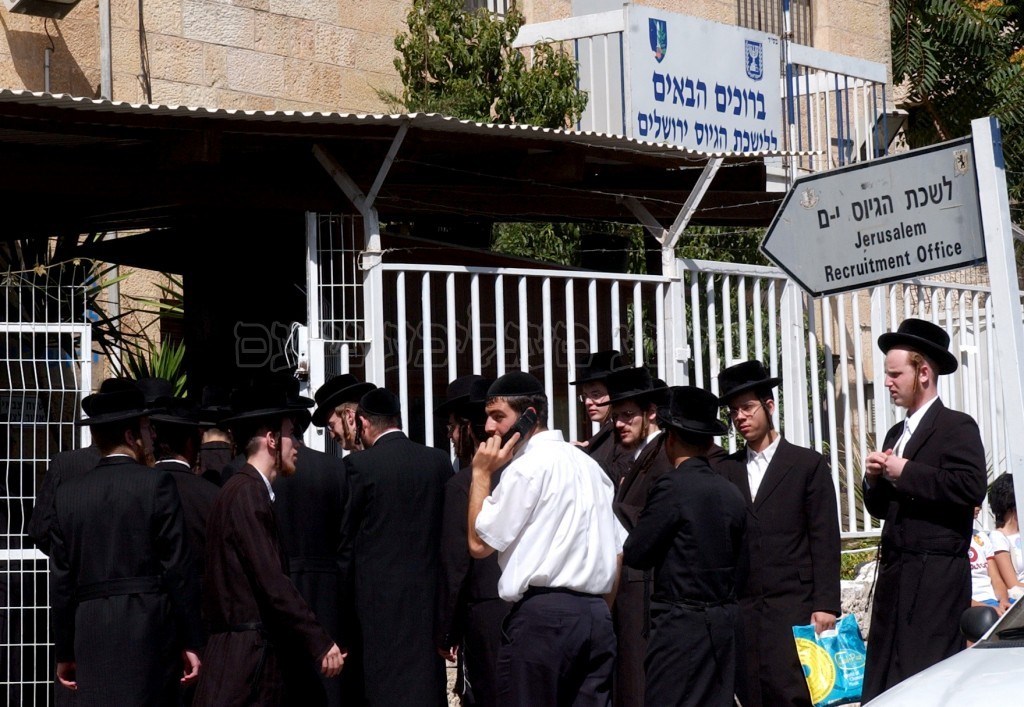
Israeli Public Opinion on Drafting Haredi Yeshiva Students
Written By: Dror Walter, Chanan Cohen
An analysis of Israeli public opinion on the issue of drafting ultra-Orthodox yeshiva students, as revealed in polls conducted by IDI's Guttman Center for Surveys from 1986 through 2009.

Belief in God is Not the Problem in Israel
Written By: Yair Sheleg
Recently, the findings of the third Guttman-AVI CHAI report—A Portrait of Israeli Jews: Beliefs, Observance, and Values of Israeli Jews—were presented to the public. The findings have drawn much media coverage because they revealed that an overwhelming majority of Israeli Jews believe in God. In an op-ed from <em>Haaretz</em>, IDI Senior researcher Yair Sheleg responds to columnists who were alarmed by the findings regarding belief in God, and argues that what is really of concern is the inverse relationship between this belief and belief in democratic values.

The Israeli Voters Have Spoken
A survey conducted in April 2011 by IDI’s Guttman Center and the Dahaf Institute on behalf of the Save Israeli Democracy NGO reveals that Israeli voters are fed up with political parties and Knesset members, but are willing to support initiatives that will change the situation.

Decade in Review: A Story of Disenchanted Lovers
Written By: Prof. Tamar Hermann
IDI Senior Fellow Professor Tamar Hermann explores developments in the relationship between the Israeli public and the political establishment, in an article that was published at the end of the third millennium as part of a collaboration between IDI and Walla!, a popular Israeli website.

Emigration from Israel – The Overlooked or Hidden Facts
An article by the Guttman Center for Surveys on the desire of young people from the Russian immigrant community in Israel to remain in Israel.

Doves and Hawks in Israeli Society: Stances on National Security
Written By: Yael Hadar, Naomi Himeyn-Raisch, Anna Knafelman
How central is the security question among the general Israeli public, and to what extent is it central in party eyes? What are the estimated percentages of citizens in Israel who associate themselves with the right and left camps? This article explores these questions and associates Israel's right and left political camps with their perceptions of security-related issues.

Israel: A Society of Immigrants
Written By: Karin Tamar Schafferman
Since its establishment in 1948, Israel's demographics have shifted greatly due to large immigrant waves (aliyot). This article examines several models of cultural absorption, analyzes the success of Israeli absorption efforts in the past, and proposes possible improvements for the future.

Israeli Secularism in the Guttman Center Polls 1990 – 2008
Written By: Asher Arian, Raphael Ventura, Michael Philippov
Findings on Israeli secularism from an in-depth study of religious behavior in Israel conducted by the Guttman Center and the Avichai Foundation, which show that a vast majority of secular Jews observe certain aspects of Jewish tradition.

Restoring Public Trust in the IDF
Written By: Dr. Idit Shafran Gittleman
The decline in public trust in the IDF is troubling – especially among youngers Israelis who will soon fill the IDF’s ranks. What can be done to reverse this trend?
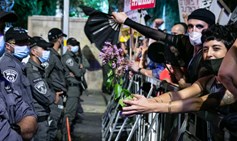
Task Number One for the Incoming Police Commissioner
Written By: Dr. Guy Lurie
The public has given the Police a failing grade for fairness and transparency. Does the public believe this can change? Not really.
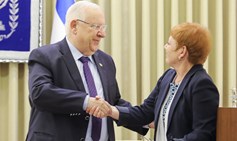
Democracy in Crisis? Israeli Survey Respondents Agree to Disagree
Written By: Prof. Tamar Hermann
Israel's 2018 Democracy Index, an annual survey of the health of Israeli democracy, shows off the deepest contradictions in Israeli life. Prof. Tamar Hermann explains why half the country thinks democracy is endangered but half do not, why the left-right divide is now seen as the most threatening division in Israeli society, but the number of Israeli Jews who think things are going well has been rising for over a decade

